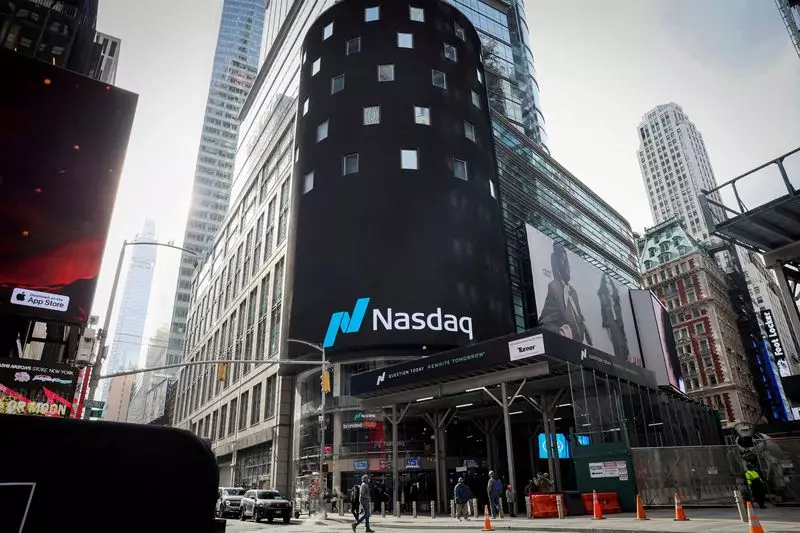In a recent development that has rattled investors, U.S. stock index futures experienced a marked decline on Friday following a speech by Federal Reserve Chair Jerome Powell. Powell’s assertion that there is no immediate urgency to lower interest rates has sent ripples through the bond market and affected rate-sensitive equities, highlighting the delicate balance investors must navigate in the current economic climate.
During his remarks, Powell emphasized the resilience of economic growth in the U.S. while also acknowledging the robust job market and persistently high inflation rates that continue to exceed the Federal Reserve’s target of 2%. This situation, according to Powell, allows the Fed to adopt a cautious approach in deciding the future trajectory of interest rates. Investors are left to grapple with the implications of prolonged high rates on corporate earnings and economic activity, which is increasingly becoming a focal point of market analysis.
As a result of these cautionary notes from Powell, U.S. Treasury yields surged, indicating a shift in investor expectations toward greater risk and a potential tightening of financial conditions. The market’s reaction was immediate, with Wall Street’s primary indexes closing lower as traders recalibrated their positions in light of Powell’s comments. Quincy Krosby, a prominent financial strategist, remarked that Powell’s statements aligned with recent consumer price index data, reinforcing the notion that achieving stable inflation remains a formidable challenge for the Fed.
In the wake of Powell’s address, traders adjusted their forecasts regarding the likelihood of the Federal Reserve maintaining its current interest rates at the forthcoming December meeting. The CME FedWatch tool indicated a rise in the probability of rates being held steady, increasing from a mere 14% to 37.6% within a month. This shift in expectations reflects a growing consensus that significant reductions in rates are not imminent, with market participants now anticipating around 73 basis points of easing by the end of 2025, as revealed by recent calculations from LSEG.
This evolving sentiment has led to weekly losses across all three major U.S. stock indexes, signaling a stark contrast to the sharp rally experienced post-election. As the focus shifts to the complexities of inflation management under a potentially second Donald Trump presidency, investor caution is palpable. The uncertainties surrounding economic policy and its ramifications for various sectors have raised red flags for many traders, prompting a reassessment of their portfolios.
The escalating uncertainty was particularly evident in the market performance of vaccine manufacturers, which faced headwinds after the announcement of Robert F Kennedy Jr as the next head of the Department of Health and Human Services. Known for disseminating misinformation about vaccinations, Kennedy’s appointment triggered negative reactions for major biotech firms like BioNTech, Moderna, and Novavax, which all reported significant declines in premarket trading. Even established players such as Pfizer witnessed a marginal decrease as investor sentiment turned bearish.
Broader market indices reflected this shift, with Dow E-minis down by 205 points, or 0.47%, while both S&P 500 and Nasdaq 100 E-minis also posted declines. Notably, large-cap stocks that have been at the forefront of the technology and innovation sectors, such as Nvidia, Apple, and Alphabet, experienced dips, intensifying concerns that high rates may impede growth in these previously resilient areas.
As financial analysts await the upcoming release of October retail sales data, additional indicators such as import and export prices and industrial production figures are expected to provide further insight into consumer behavior in the face of rising prices. The outcome of these reports, alongside comments from New York Fed President John Williams, could either reinforce or alter the narratives currently shaping market sentiment.
Powell’s latest comments illustrate a complex interplay of economic factors and market reactions that will likely continue to resonate through the coming weeks. Investors must remain vigilant as they navigate this unpredictable landscape, balancing the challenges of inflation against potential opportunities for growth amid evolving monetary policy. The road ahead appears fraught with challenges, underscoring the need for strategic foresight in investment decisions.


Leave a Reply